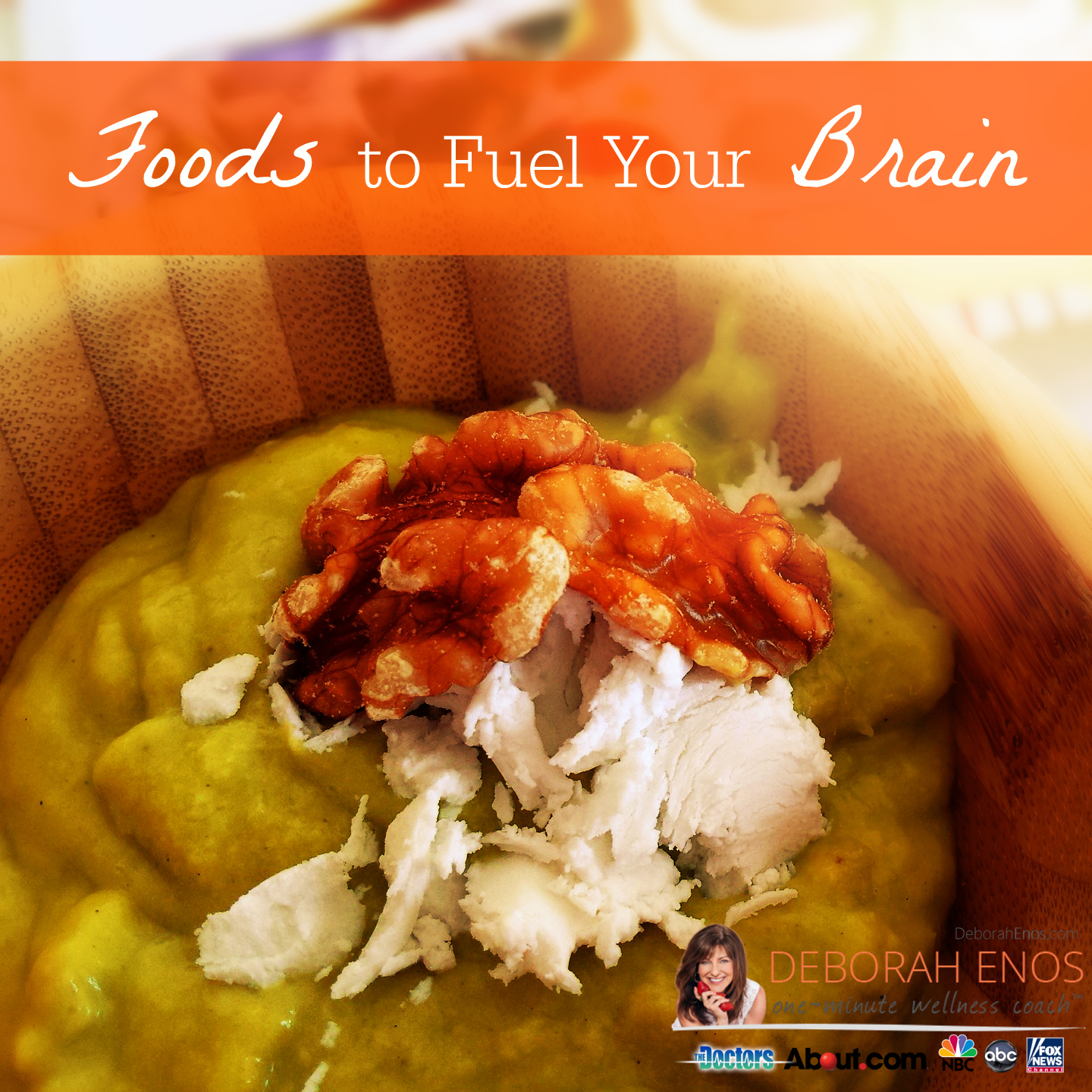
11 Feb Foods to Fuel Your Brain

But, what if there was something we could do to stop or slow memory loss? As you might have guessed, the answer doesn’t come in pill form. In order for your brain to work properly, it must be fueled with the right nutrients. A 1997 Journal of the American Geriatric Society study found that patients who had higher blood levels of vitamin C and beta carotene scored better on tests of memory, vocabulary, recall and recognition. Both vitamins work as antioxidants, which can prevent cell damage within the brain (and the rest of the body).
A 2010 Journal of the Alzheimer’s Association study found that omega-3 fatty acids* may improve memory and learning in older adults with minor cognitive impairments. Omega-3 fatty acids can be taken in supplement form, but they are also found in certain foods.
Although there are specific nutrients that have been proven to have a direct impact on memory function, it’s important to remember that these nutrients don’t work in isolation. That’s why it’s always better to get as much nutrition from food as possible.
Here are a few tips for getting more of these brain-boosting nutrients into your diet (in their natural form):
1. Guacamole night – Guacamole is a fun party food, but it doesn’t have to be reserved for special occasions. Make some guacamole and add my favorite chips from Way Better Snacks (love the Blue Corn Tortilla chips with guacamole) for your family to nosh on while dinner is in the oven. Avocados are rich in vitamin C, which will help you remember the fond memories you’re creating.
2. Add grated carrots to your salads – Carrots are quick and easy to grate, and they’re also very rich in beta carotene (hence the name).
3. Eat more fish – Salmon, tuna and halibut all have high levels of omega-3 fatty acids. Try to incorporate one of these into your dinner plans at least once a week.
4. Snack on walnuts – Walnuts are rich in omega-3 fatty acids, so they are a good alternative if you don’t like fish. Flaxseed is another non-fishy source of this essential fat. My favorite flaxseed is Barleans Forti-Flax. Click here for a coupon!
5. Replace starchy white potatoes with beta-carotene-rich sweet potatoes. You can bake them, mash them, or make them into fries – just as you would with the white potato.
*Please consult with your physician before taking supplements, especially omega 3 fatty acids (as they can act as a blood thinner). It’s important to notify your health care professional about any supplements you take or are considering taking.






Pingback:Foods To Fuel Your Brain
Posted at 17:48h, 13 March[…] Source: deborahenos […]